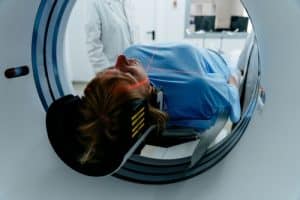As athletes, we push our bodies to the limit in pursuit of excellence, but sometimes the pursuit leads to sports injuries. Whether you’re a professional athlete or a weekend warrior, injuries are an unfortunate part of the game. In such moments of uncertainty, MRI (Magnetic Resonance Imaging) emerges as a game-changer. In this blog, we’ll explore how the whole body MRI for sports injuries has revolutionized the way we diagnose and treat athletic injuries, making the recovery process faster and more effective.
MRI is a non-invasive imaging technology that uses powerful magnets and radio waves to generate detailed images of the body’s internal structures, including muscles, tendons, ligaments, and bones. When it comes to sports injuries, the whole body MRI has proven to be an invaluable tool for several reasons:
-
Early Detection
Early detection of sports injuries is crucial to prevent them from becoming chronic or causing further damage. The whole body MRI can reveal injuries that may not be apparent through physical examination alone, enabling athletes to seek treatment promptly.
-
Accurate Diagnosis
MRI provides unparalleled clarity when it comes to diagnosing sports-related injuries. It enables medical professionals to pinpoint the location and extent of the damage, whether it’s a torn ligament, a stress fracture, or a muscle tear. Accurate diagnosis is the first step toward effective treatment and rehabilitation.
-
Injury Classification
Different sports injuries require different treatment approaches. An MRI can help categorize injuries as acute or chronic, allowing healthcare providers to tailor treatment plans accordingly. This distinction is vital in determining whether surgery or conservative management is the best course of action.
-
Monitoring Progress
MRI is not limited to diagnosis alone. It also plays a crucial role in monitoring the progress of an athlete’s recovery. Regular MRI scans can show how well an injury is healing and whether the treatment plan needs adjustments.
Common Sports Injuries Diagnosed by the whole body MRI
MRI is a versatile tool that can be used to assess various sports-related injuries, including:
- ACL Tears: Anterior Cruciate Ligament (ACL) tears are common in sports like football, soccer, and basketball. MRI helps determine the extent of the tear and guides surgical planning if necessary.
- Rotator Cuff Injuries: In sports like baseball and tennis, rotator cuff injuries are prevalent. MRI identifies tears and other issues in the shoulder, guiding treatment options.
- Stress Fractures: Runners often experience stress fractures in their shins or feet. MRI can accurately diagnose these microfractures, helping athletes avoid further damage.
- Muscle Tears: Athletes in various disciplines may suffer muscle tears. MRI shows the location and severity of the tear, facilitating targeted treatment.
Advantages of Using MRI in Sports Injury Management
- Non-Invasive: MRI doesn’t involve radiation, making it a safe option for athletes who may require multiple scans during their career.
- Targeted Treatment: Accurate diagnosis leads to more focused and effective treatment plans, reducing downtime and enhancing recovery.
- Prevention of Recurrence: MRI helps ensure that an injury is fully healed before an athlete returns to play, minimizing the risk of re-injury.
- Rehabilitation Guidance: MRI enables healthcare professionals to adjust rehabilitation programs based on real-time information about the injury’s progress.
In the world of sports, time is often of the essence, and the ability to get back in the game swiftly is a top priority. MRI in sports injuries has become an essential tool in the athlete’s journey toward recovery. It provides the confidence of a precise diagnosis and a tailored treatment plan, ultimately leading to a faster return to the playing field.
If you’re an athlete or sports enthusiast who has experienced an injury, consider the transformative role that MRI can play in your recovery. Consult with your healthcare provider to discuss the benefits of MRI in your specific case. Remember, the goal is to get you back to doing what you love, and the whole body MRI is an invaluable teammate in achieving that goal.
So, don’t let sports injuries sideline your passion. Embrace the power of MRI, and let it help you get back in the game, stronger than ever. Book your scan now!
Read More






